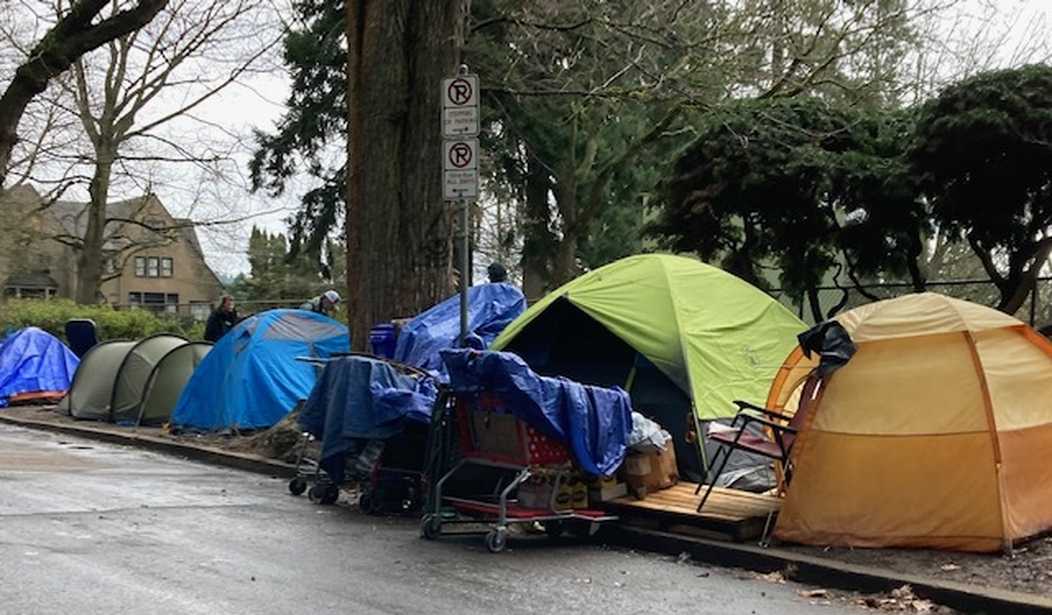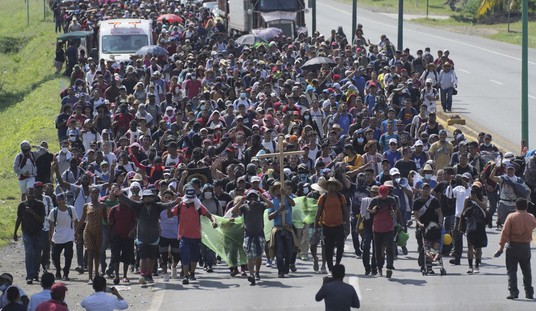There has been a major change in many American cities in terms of how to handle the problem of homelessness, Cities are beginning to enforce public camping bans in an effort to clear the sidewalks of homeless encampments that not only pose a hazard to citizens but also exacerbate some of the problems associated with homelessness like drug bazaars and public urination.
Arguments about the danger of mentally ill people walking the streets, accosting residents, and generally making life a living hell for some citizens are beginning to win over politicians in big cities who have been forced by voters to recognize their plight.
And courts have also begun to side with cities in their bid to enforce their bans against publican camping. Homeless advocates disagree.
“Human beings need somewhere to rest their heads at night,” the Coalition for the Homeless’s executive director, David Giffen, tells the New York Sun. “If there’s no affordable housing available and no decent emergency shelter, they’re going to need to find somewhere to bed down and will set up tents, shanties, whatever they can.”
Define "decent" emergency shelter. Cities can do a better job of making these shelters safer, but beyond that, what do homeless advocates expect? The Ritz?
Cities need to provide “rational alternatives” if they’re going to clear encampments, said Giffen. “Criminalizing poverty isn’t only inhumane and counterproductive, it’s also more expensive in the long run,” Mr. Giffen says.
Since no one is going to jail or being fined, no one is "criminalizing" anything. If a mentally ill person needs to be institutionalized in order to protect him and others, that's not "criminalizing" anyone either.
Homeless advocates like Giffen are a big part of the problem, says San Francisco Mayor London Breed.
"The homeless coalition has held San Francisco hostage for decades. It is time for their reign to end," Breed said, noting that the city has spent billions of dollars to help homeless people.
A federal judge has banned San Francisco from clearing homeless encampments until there are more shelter beds than homeless individuals. What makes that ruling nonsense is that the homeless are refusing shelter beds even when there are plenty available.
Breed blames homeless advocates who have worn a path to federal court over the past few years challenging every act that the city makes to control the homeless problem.
New York Sun:
Yet, cities across the country are turning to harsher encampment sweeps as urban homelessness surges. Boston’s homeless population swelled to 5,202 in 2023, city data show, up 17 percent from 2022’s numbers.
The city is in the process Wednesday of carrying out an order from the mayor, Michelle Wu, to clear more than 75 tents from an area known as “Mass and Cass,” as city officials say they’re rushing to clean it up because of drug use and human trafficking that can be disguised in the tents.
“They treat us like we are disgusting,” one homeless woman told NBC Boston of the city employees who are clearing the camps.
How many homeless people reject the extended hand of government or private charities to assist them? Homelessness is a many-faceted problem with blame enough to go around — including the homeless themselves, some of whom refuse treatment, refuse shelter, and refuse help.
Yet sometimes the cities have to be forced to do what's necessary to clean up their streets.
Phoenix city employees told the Sun in September they were “disappointed” with a court-imposed order to clear a sprawling encampment known as “The Zone.” Phoenix city employees said Wednesday they’re trying to find shelter for 70 homeless individuals — more than 1,000 unhoused people were once living in the area — as the judge’s November 4 deadline approaches.
In recent months, city governments and advocacy groups have been frustrated over legal murkiness in a city’s ability to clear tent encampments because of two Ninth Circuit rulings that seemingly tie cities’ hands — or are used by city leaders to justify inaction — on homelessness.
“The unsheltered crisis is unacceptable, and no one is happy to see that people are forced to live outdoors,” a spokesman for the National Alliance to End Homelessness, Tom Murphy, tells the Sun. “But our communities need strategic and effective responses to unsheltered homelessness, and encampment raids are neither.”
The raids are effective in one way at least: they force city governments to think about their homeless problem from the point of view of residents who have to put up with the encampments every day.










Join the conversation as a VIP Member